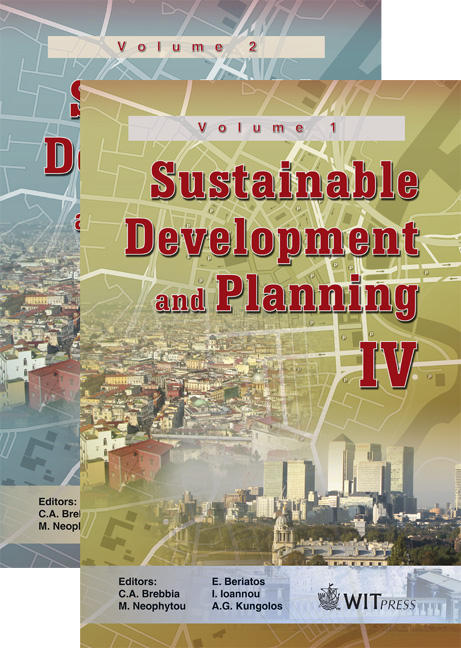Sustainable Development Aspects Of Biodiesel Production And Application In Brazil
Price
Free (open access)
Transaction
Volume
120
Pages
10
Page Range
733 - 742
Published
2009
Size
451 kb
Paper DOI
10.2495/SDP090682
Copyright
WIT Press
Author(s)
O. Valente, M. Silva, R. Ávila, J. Vianna & J. Sodré
Abstract
Concerns about climate change effects have prompted many countries to search for solutions to reduce fossil fuel consumption. In the last few years biodiesel production has gained world attention, as it is seen as a sustainable and renewable energy source. Biodiesel is a natural substitute for diesel oil, and can be obtained from different oleaginous plants. However, there are worries about devastation of forests and biodiversity-rich areas to produce biodiesel. Even considering biodiesel as a promising solution, the impacts of its production must be carefully evaluated. This work examines the Brazilian scenario for biodiesel production and use as an automotive fuel. Native and adapted oleaginous in many Brazilian regions and their potentiality for biodiesel production are presented. Experimental results of hydrocarbons (HC), carbon monoxide (CO), and carbon dioxide (CO2) emissions from a diesel power generator fuelled by blends of diesel oil and castor oil or soybean biodiesel are also presented. Keywords: biodiesel, renewable energy, sustainable development, emissions. 1 Introduction In Brazil, load and public transportation is mainly based on vehicles equipped with diesel-cycle engines. More than 2 million trucks travel along 1.6 million kilometers of roads, delivering 61% of the total goods cargo. In urban areas 95 thousand buses make the basis for the public transportation system. The transportation system is responsible for an annual consumption of 42.1 billion liters of diesel, from which only 38.6 billion are refined in Brazil. Another 6.4
Keywords
biodiesel, renewable energy, sustainable development, emissions.





